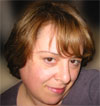When Tim’s tour of duty was up he came home and started working at our father’s hardware store. Our beautiful mother, whom the ravages of age and sunlight had left virtually untouched, was the most content I’d seen her in years. Bach’s Brandenburg concertos filled the house, where she baked fresh bread for our older brother and forwarded tins of homemade cookies to Johann at baseball camp, secure in the knowledge that he would receive them, even if he failed to write letters back.
Even Betsy, freewheeling through her freshman year at college, returned from her visits home awed by the sense of fullness emanating from the household. Only our father seemed less sure of things, pressured by the encroachment of huge discount chains into his territory. The small guy can’t win, he said one night. The next evening as father and son took inventory in the back of the store, he clutched suddenly at his chest but Tim couldn’t help him, as he’d been trained to deal only with extremes in climate, hostile forces hitting from without.
Despite our last-ditch efforts to locate him, Manuel was not present at the funeral. Afterwards our mother was inconsolable. Doubly bereft, she moaned constantly, at one point softly crying out for Manuel, too. I held her hand, thinking how unfair it was that she could moan his name in public without feeling like a deviate. Betsy told feeble jokes, and Johann, in his suit of mourning, pitched imaginary fastballs into space. Tim tried frantically to calm her. After the visitors had left, he went upstairs to his room and came back wearing his military parka and boots. He’d never shown us these before, apart from group photos: bulky packs of eskimos, faces obscured by thick hoods.
“This is what he’d be wearing,” he told her.
“But how do we know?” She sobbed. “We’ll never know where he is.”
When the insurance check arrived it was determined that Tim would go to Antarctica on a fact-seeking mission. After a strenuous search, Betsy managed to find an eight-day cruise that came in at just under ten thousand dollars. We booked his reservation and waited for November, start of the austral summer.
Tim arrived home ruddy and glowing with excitement. In the airport we ran up and hugged him tearfully. Our mother, anxious and weary with the anticipated findings, awaited him at the house. When we got back our mother sat him down and fed him a meal she’d prepared, his most favorite foods.
After the meal we moved to the den, where he opened up his pack and passed around instamatic shots of Southern elephant seals, a volcanic beach, an Adélie penguin colony on Paulet Island. This was just for starters, he told us, since he had ten rolls of film to be developed. It was an amazing place, he kept saying. Amazing.
Our mother, looking pale, quietly asked about Manuel. After a moment Tim said he hadn’t managed to find out anything. She pressed on: What about Esperanza? Tim explained that Esperanza was a military foothold, off-limits to sightseers. He had not wanted to cause trouble. Besides, the day-to-day schedule was pretty packed.
“You never liked Manuel,” she accused.
But she was wrong. Anyone could see it was Johann who didn’t like him.
Tim sadly left. After two days, we thought he’d reenlisted. Then three weeks later we received a postcard from the jungles of Brazil.
Don’t worry, it said.
I’m okay. And the following week, the U.S. Embassy wired us the message that Tim was in a hospital in Sao Paolo, stricken with a mysterious fever, and in his state could not be safely transported home.
Our mother, the only one of us with a ready passport, went ahead; Betsy, Johann and I followed the next day. From the airport we went straight to the hospital, where our mother sat at his bedside, crying, “Esperanza.” Flustered nurses brought her cool drinks. “Your brother?” One of them turned to me and smiled. “Very nice. He looks just like Marinho.” I didn’t ask who Marinho was.
The next day he was lucid, but too feeble to speak. We sat with him, chatting about the neighbors, about camping, about the hardware store we’d decided to put up for sale. No one mentioned Manuel.
His eyes slid closed; we’d exhausted him. He went to sleep and woke up hours later, shivering and drenched with sweat. Johann looked down at his hands, while Betsy urged Tim to
think penguin. The hardy and adaptable bird-mammal, world’s most lovable anamoly. I touched his hot-cool forehead and watched him breathe. Here in the tropics we enjoyed none of the visible assurances of cold-air exhalations. I had to watch his chest.
We perspired helplessly. None of us were prepared for our touchdown onto this new continent. So we clung to him. I’m sure Betsy took careful notes, gauging each subtle flicker of expression. Tim lay prone on the bed. All that knowledge trapped inside him, gently melting away.
His eyes slowly pointed toward our mother. “Mom,” he said. Then, “Mama.” Then a faint lilt, a lurch: “Mamá.” Or was it my imagination? Then finally, “Ma. Maa.”
*****
Eventually our mother began to age. It was bound to happen, and then the hysterectomy, which pinpointed her lack, internalized it. This time she accepted gracefully. Hormones helped to regulate her moods, and she directed her energies back to her very first love, piano. Children came to the house to study with her.
After college Johann was hired by a public-relations firm; one day he gathered us together at his apartment to announce that he’d changed his name to John. (He almost reverted later, then stuck with his decision.) Betsy studied drama in New York, and recently got rave reviews at Chicago’s Gateway Theatre for her Blanche Dubois, although her true forte is comedy.
I live in a big city, and my secret terror is of encountering Manuel without realizing it. An anonymous run-in on the street is what most worries me. I could calmly befriend him, invite him over, if his identity were clear to me.
As a result I try to know everybody by name--or avoid contact with men I can’t classify. This is not as difficult as it seems. People find me outgoing, effusive, when I smile and orchestrate a mutual introduction. Because of my work as a journalist, none of this looks suspicious.
As an offshoot of this friendliness I have had many lovers. So far none have been Manuel Suárez. I’ve decided that this in itself is no reason to turn them down; after all, it’s something tangible, knowing who someone is not. These men are harmless and self-serving. We exchange phone numbers and addresses, which I eventually throw away. I am placated temporarily, but later I think that they are delays, wasted moments, obstacles strewn in the path that connects me to him.



